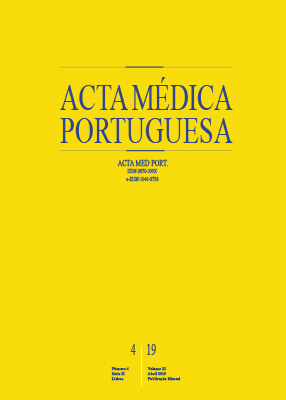A Narrative Review on Anti-Tumor Necrosis Factor α Therapies in Inflammatory Bowel Disease During Pregnancy: Immunoglobulin Placental Translocation and its Impact
DOI:
https://doi.org/10.20344/amp.11482Keywords:
Adalimumab, Infliximab, Inflammatory Bowel Disease, Pregnancy, Tumor Necrosis Factor-alphaAbstract
Introduction: Inflammatory bowel disease activity is associated with adverse pregnancy outcomes. Anti-tumor necrosis factor α therapy is often required to treat flares and to maintain disease remission. However, there are concerns regarding treatment with these agents during pregnancy, as they actively cross the placental barrier.
Material and Methods: Studies regarding anti-tumor necrosis factor α therapy during pregnancy were identified from PubMed from 1958 to January 2018. The reference lists of the selected studies were reviewed to identify complementary publications.
Results and Discussion: Anti-tumor necrosis factor α agents are efficient treatments for moderate-to-severe inflammatory bowel disease and may ensure remission during pregnancy. Although these drugs cross the placenta, they are considered safe for both the mother and the fetus. Furthermore, up-to-date guidelines support therapy continuation during pregnancy aiming for disease control. The same guidelines also consider stopping treatment during the third trimester to limit maternal-fetal drug transfer. However, data shows that this strategy does not completely prevent fetus exposure. In addition, stopping treatment incurs in risk of disease flare and threatens subsequent therapy response. Fetus drug exposure has not showed an association with adverse childhood development. However, as infant drug levels could be detected up to seven months after birth, postponement of live virus vaccination is recommended.
Conclusion: There should be no disagreement among the medical community as to the need to maintain therapy aiming for disease remission during gestation in inflammatory bowel disease. Anti-tumor necrosis factor α agents are safe for both the mother and the fetus.
Downloads
Downloads
Published
How to Cite
Issue
Section
License
All the articles published in the AMP are open access and comply with the requirements of funding agencies or academic institutions. The AMP is governed by the terms of the Creative Commons ‘Attribution – Non-Commercial Use - (CC-BY-NC)’ license, regarding the use by third parties.
It is the author’s responsibility to obtain approval for the reproduction of figures, tables, etc. from other publications.
Upon acceptance of an article for publication, the authors will be asked to complete the ICMJE “Copyright Liability and Copyright Sharing Statement “(http://www.actamedicaportuguesa.com/info/AMP-NormasPublicacao.pdf) and the “Declaration of Potential Conflicts of Interest” (http:// www.icmje.org/conflicts-of-interest). An e-mail will be sent to the corresponding author to acknowledge receipt of the manuscript.
After publication, the authors are authorised to make their articles available in repositories of their institutions of origin, as long as they always mention where they were published and according to the Creative Commons license.









